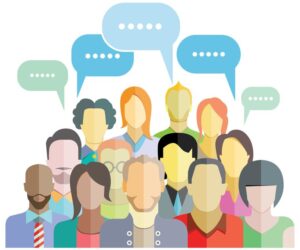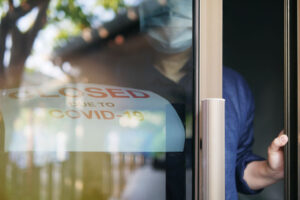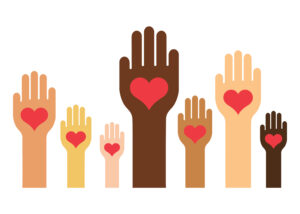| COVID-Related Articles July 15th, 2020 by Bill Boyajian |
Like many of you, over the course of the last few months I’ve had time to reflect. Although our experiences in various parts of the states and around the world may be different, we were all in some way affected by the global pandemic which brought our businesses and lives to a halt. It forced us to re-evaluate and course correct, as well as recharge and refocus. Compiled here are the 13 articles I wrote during this timeframe, of April – June 2020. Like many of you I have been challenged to find purpose and significance through this transitional time. I hope my words resonate with each of you and that you find value from them. We’re in this together.
Helping People Like many of you, I’ve had to cancel several business and personal trips during this Coronavirus pandemic. We book our dog sitter well in advance of these, so we had to cancel her arrangements, largely due to no fault of our own. She doesn’t keep a personal residence, so she depends on staying fully booked to have a roof over her head. With the current travel bans, she was placed in severe hardship with many clients. We paid her what she would have made and even offered our home if she needed a place to stay.
I’m not sharing this to boast about what nice people we are, but to draw attention to the fact that no matter how bad off you are, there are plenty of people who are much worse off. Helping people who really need assistance is what we should be doing right now. I’m offering a lot of free advice and support to clients (new and old) and friends with no expectation of reciprocation. I hope you are, too. It’s a good time to be thinking of others, not ourselves. If you’re used to giving a 20% tip to a restaurant worker when you pick up an order, give 25%. If you want your local coffee shop to be in business when we emerge from this, patronize them in any way you can. If you have service providers who depend on work to put food on the table, consider helping them out. We can all do our part. The beauty of helping people when they need it the most is that they will remember you long after you forget what you did. Helping people is the most gratifying work we can do. Who can you help today?
What Are You Thankful For? Look around. A lot of people are going through much deeper hardship than you. Many people are doing more than they ever thought they would have to do. Healthcare workers opted for that career, but they never signed up for what they’re going through today. I am incredibly thankful for them. Law enforcement gets a bad rap almost every day, but what would we do without them now to keep the peace and sanity in a world filled with fear and uncertainty? I am thankful for them. Fire fighters are unsung heroes day in and day out that we sometimes take for granted until we need them the most. They always show up. I am thankful for them. People in essential services are braving the workplace and volunteers are helping to bring us necessary food and supplies and products, even dropped at our doorsteps. Most are glad they’re working and busy, but they, too, are on the firing line. I am thankful for them. Technology has become our lifeline to connect with family, friends, support groups, and co-workers. I’m thankful for technology companies whose services are vital in a pandemic world. I could, and probably should go on, but you get my point. Despite whatever hardships we’re going through – financially, with children at home all day, and otherwise – there is still a lot to be thankful for. We’ll get through this together, but let’s be thankful right now for what we have and for those who are helping us.
What the World Needs Now If you’re old enough, you remember the song with the lyrics, What the World Needs Now is Love Sweet Love. There isn’t a truer statement than that right now. Heroic deeds by first responders and the medical community surround us. They say it’s what they’re called to do. These are ordinary people who are doing extraordinary work to save lives while they put their own life in jeopardy.
Times like these give us pause to consider what is really important. Family, friends, neighbors, our communities. People. That’s what really matters. When everything is said and done in our lives, the thing that lives on through us is those who are left behind. Which is one reason why our investment in people is so important. It’s the best way – and maybe the only way – to leave a lasting legacy. That legacy lives through others with the influence they have on those they touch. So if there ever was a time to know what the world needs now, it’s love sweet love. Share a little love with someone today.
Crisis Is the Child of Opportunity If necessity is the mother of invention, then crisis is the child of opportunity. Go to YouTube today. You will see how millions of people have created and received myriad ways of making it through the Coronavirus pandemic. Creativity seeks opportunity, so it’s time to abandon notions of insecurity and doubt to think of new and innovative ways to get through the days, and to emerge stronger as the country and businesses open up.
What can you do now to set the tone for the future? How can you accept the things you cannot change and take charge of those you can? Where are the hidden gems that occur to you during this awkward time? When can you best seek the opportunities that lie behind this crisis? Who will be the one to invent the next big thing? Children are far more creative that adults. They dream, they imagine, they create. They have no boundaries. Crisis is the child of opportunity. Think like a child today and set your imagination free. Business Tip:
Life Tip:
Excess and Access The global pandemic, horrific as it is, has taught us a lot, especially about us. It’s a story about excess and access. The more we have, the more we lament those things we miss. I recall my son’s comment when returning from a third world country on a high school trip to help impoverished people. He said the children there have so little, but they’re still so happy. Do things make people happy, or is it something else?
Dog pounds are empty today because people are sheltering in and getting back to basics. They’ve been adopting dogs like never before. Imagine children playing with puppies instead of being fixated on a video game with their digital device. With limited ability to comfortably leave our homes, many are experiencing the joys of cooking. Trying new recipes and partaking in more family time are unexpected blessings of the crisis. It’s back to basics, a step back in time. Maybe we needed some of this to get us to slow down, appreciate what we have, and learn how to use technology as well as basic services to live more simply. Learning about ourselves may be the most important lesson that comes from this challenge.
Takeaways from Sheltering In
What I’ve Learned (or had reinforced) During the Crisis • The importance of first responders, medical professionals, and even grocery clerks Business Tip:
Life Tip:
Nothing Takes the Place of a Face to Face Meeting….Maybe! The world won’t completely change after the Coronavirus pandemic, but some things will. For example, we all know that the most effective way to convey our thoughts, personality, character, charm, etc. is in a face to face encounter. Or is it? We’ve now learned – if we didn’t know it before – that we can have a similar, yet not identical experience through a live video meeting via Zoom or one of many other services. Webinars and educational events; business meetings and customer facing; birthday parties and anniversary events; singing, dance, and orchestra performances; and a myriad of other happenings have all occurred through video chat as an alternative to meeting in person.
I’m not saying that these will replace what we actually prefer – face to face contact and experiences – but they may become a reasonable alternative. I’ve always said in leadership that you should delegate anything that anyone else can do 80 or 90% as well as you so that you can do those things that only you can do. If a video conference is 80 or 90% as effective as an in-person meeting, is that good enough? Only time will tell, but I suspect that one of the major changes that will take place post-Coronavirus is an adaptation to alternative means of communication and the conveying of ideas, training, education, selling, buying, and experiences that we can get in new and interesting ways. What do you think?
Moving Forward The past is history and the future is a mystery. We must learn from the past and live in the present in order to shape our future. Whether we like it or not, time is always moving forward. We can’t live in the past or affect anything that has already happened. All we can do is learn from it. When we stop learning, we stop growing.
Yet some people still live in the past. They allow the past to define their present, and it therefore determines their future. We can look back, but we can’t go back. The new normal will be the next normal, and after a few years, it will be normal. Things will never be as they were. Sometimes we have to pause and reflect in order to move forward. The past two months have given us time to think. Let’s learn from it.
How Bad Is It? Life is hard right now. Nearly 100,000 people in the U.S. have died from COVID-19, unemployment is near record levels, it’s hard to discern correct information from mis-information, and none of us know what the future will hold. This got me thinking about previous generations, and a look back at my grandmother’s life. She was born in Armenia in 1895. At 17, she boarded a ship with a man (my great grandfather) she didn’t know to cross the pond to marry a man she didn’t know (my grandfather). Her parents felt that coming to America was her best shot at life because the young Turks were rattling their swords and threatening the lives of Christians. Arranged marriages were the only way to keep the culture alive. When Grandma was 20, her family perished in a genocide that killed a million and a half Armenians. This was during World War I in which 22 million people died. As the war ended, another 50 million lives were lost from the Spanish Flu.
In her mid-40s World War II breaks out. Her middle son (my father) goes to war. Dad survives, but 75 million perish during the war years. Then comes the Korean War in the 1950s and another 5 million people die, followed by the Vietnam War in the ‘60s with another 4 million lost. The Cuban Missile Crisis in 1962 threatens the lives of everyone on the planet as those of us in school learn to hide under our desks in case of a nuclear attack. When I graduated from high school in 1970, I shared with my grandmother how much she has seen in her lifetime: The advent of the automobile, commercial airline travel, and even a man on the moon in 1969. At the time, I never thought about how hard her life was because she never complained about it. She was always grateful. I try to look ahead in life, but sometimes it’s good to look back. Perspective is helpful to see life as it really is. People are listening more today than they have in the past. Listening is hard work because it takes us away from ourselves to focus on others. It’s not in our human nature to do this, which is why we tend to avoid it. Part of the problem is the fear we have that we could be wrong about what we believe. We obsess about our own thinking and constantly reinforce our ideologies with what we watch on TV, who we listen to on the radio or online, and who we hang out with in our circle of friends.
Listening with the intent to understand is one of the principles of great leadership that is hard to master. It requires a commitment to engaging intently on what someone else is saying and trying to understand and even empathize with their view. None of us is as smart as all of us, and real knowledge comes not from speaking, but listening with intent. If you want to be a better leader – or just a better person – you need to take such listening to heart.
Hindsight Is 20/20, and So Is the Year 2020
While the worst almost never happens, it did this year. We can’t live our lives or run our businesses as if the worst is always going to happen because it seldom does. None of us expected or anticipated a global health and economic crisis. But we can consider what the worst is, or will be, and plan a scenario or two of how to deal with it. Now that businesses are slowly reopening and people are getting out, we need to understand that some things will fundamentally change. Some industries will be hurt very badly and others will benefit because of the space they occupy and the adjustments society will make to form the next normal. Ask the question of what this means to you. Use this year to reflect on plans for the future. Don’t forget what we have gone through, and what we may continue to cope with in the months ahead. Now is the time to be thinking, planning, and executing based on what the future may hold. None of us know exactly what it will look like, but all of us can and should reflect on the recent past, seek opportunity within the changes taking place, and move forward with resilience and perseverance.
Which Crisis is Worse? Last week I wrote about using 20/20 hindsight in the year 2020. I only scratched the surface of the COVID-19 issue, but there is much, much more to be concerned about. The health crisis caused by the Coronavirus has created an economic crisis, and more recently, a social crisis in our country. None of us know how the health crisis will play out before a vaccine is developed, and the jury is still out on just how long it will take for the economy to get back to what we experienced before the lockdown.
But the crisis that concerns me the most is the social unrest that has again erupted in our country. I grew up in the 60s, as many of you did, so it is disturbing on many levels to be reliving the times over five decades later. Progress has been made, but the recent weeks have made it painfully obvious that much more must be done. Those with an open mind and heart can feel the pain of others. What confounds me is the hatred that still exists deep in the souls of people with an ideology of bigotry and discrimination. None of us is perfect, but each of us can do better. That should be our mantra. What can you do to make a difference?
Finding “Fit” Employers need to find “fit” with their employees. Fit involves three main areas: the culture of a company or organization, the specific role an individual plays in contributing to the business, and the adaptation of the individual to the person he or she reports to. If fit cannot be achieved, problems will emerge that are difficult to resolve.
Fit in society is an ever-evolving element, too. America is a melting pot of nationalities and backgrounds that varies widely from many other developed countries. People bring their culture, religion, and ethnicity with them and learn to adapt, or not, into the American lifestyle. We don’t know what it’s like to live in others’ shoes, and many are intolerant of trying to understand. If ever there was a time to find “fit” in our country, it’s now. Fit in business requires intelligence, effort, diplomacy, strength, perseverance, and commitment. These same elements are necessary in society, too. There are a lot of things we don’t understand about other people. And there are a lot of things they don’t understand about each of us, too. The goal is to listen with real intent and to seek to understand others in a way that heals division and finds fit. |
- Home
- About Bill Boyajian
- Family Business Succession Planning
- Developing the Mind
of a Leader - Consulting
- Speaking
- Coaching
- Business Transition &
Succession Planning - Blog
- Associates
- Store
- Contact
“I needed help orchestrating a succession plan for our business. I had heard that Bill Boyajian specialized in assisting owners to transition their business to the next generation. He knows how to bridge the generation gap and deliver what each needs to hear. I would recommend Bill to any business owner who needs advice on succession planning from a trusted outside professional.”
–Charles Denaburg,
Managing Partner,
Levy’s Fine Jewelry
Birmingham, AL
"Our family needed some guidance on business transition and succession planning. We asked Bill Boyajian to help us because we knew we could trust him to tell us what we needed to hear. Bill became a valuable resource for our company and our entire family. He has the ability to meet each of us where we’re at and it has served us very well."
–Ceylon Leitzel
Leitzel Fine Jewelry
Hershey & Myerstown, PA
“We needed a plan to transition our business to a non-family member and we asked Bill Boyajian to help us. His experience in the area has really paid off, but we didn’t expect the added value of putting us together with a financial planner who helped organize our retirement needs. We now have the fundamentals to transition our business successfully, and we have Bill to thank for it.”
–Ernie & Debbie Cummings
Kizer-Cummings Jewelers
Lawrence, KS






 I also recall a Russian woman coming to tears when she walked into a supermarket in America after the opening of the Soviet Union in the early 1990s. She was simply overcome with emotion because of all the choices we had at our fingertips. Now we complain about a lack of toilet paper.
I also recall a Russian woman coming to tears when she walked into a supermarket in America after the opening of the Soviet Union in the early 1990s. She was simply overcome with emotion because of all the choices we had at our fingertips. Now we complain about a lack of toilet paper.


 Living in rural America in the 1920s was hard. No indoor plumbing, birthing children at home, and eking out a living raising crops. And then the Great Depression hits and things get even worse. Unemployment rises to 25% and world GDP drops 27%. My grandmother is the age of most Millennials at the time with three children.
Living in rural America in the 1920s was hard. No indoor plumbing, birthing children at home, and eking out a living raising crops. And then the Great Depression hits and things get even worse. Unemployment rises to 25% and world GDP drops 27%. My grandmother is the age of most Millennials at the time with three children.
 COVID-19 makes the year 2020 one to never forget. But let’s also take stock and look back on it with 20/20 hindsight. What has gone right and what has gone wrong? What did we learn that we can take into the years ahead?
COVID-19 makes the year 2020 one to never forget. But let’s also take stock and look back on it with 20/20 hindsight. What has gone right and what has gone wrong? What did we learn that we can take into the years ahead?




